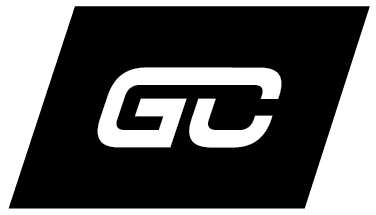The FIFA World Cup: The World’s Biggest Stage
June 14, 2018. Russia. The Russian National Team pummels Saudi Arabia in a 5-0 thriller at Luzhniki Stadium.
June 14, 2018. Yemen. Saudi Arabian forces lead the largest attack on Yemen since the war between the two countries began in 2015.
June 15, 2018. United States. I open my news feed to the astounding article: “Crushing defeat for Saudi Arabia in World Cup opener against host Russia.”
And nothing else.
The FIFA World Cup is by far one of the most significant global events other than the Olympics. The meeting of 32 teams of different ethnicities, backgrounds, and training reminds the world of their love for soccer: the competition, the upsets, and the sense of nationality that brings people together as nothing else can. The World Cup also acts as a distraction from the pressing world issues we face today. For example, the Saudi Arabian attack on Yemen. With so many countries competing in this tournament, one would think the conflicts between nations or situations impacting the athletes would be brought into the spotlight along with the teams. But with the 2018 World Cup entering its final weeks, have the athletes and fans taken advantage of this global platform the World Cup provides to promote the global issues that need to be addressed?
The moment Russia accepted the bid from FIFA to host the 2018 World Cup, countries across Europe and the United States were quick to point out the moral and ethical problems with this bid. During the 2014 Winter Olympics in Sochi, Russian athletes were caught up in a doping scandal that stripped many Russian athletes of their medals. Also, Russia’s history of hate and bigotry towards people of color and the LGBTQ population discouraged many people from attending the World Cup. The issues of human rights don’t just stop with Russia. Iranian women fought against harassment to attend the Spain vs. Iran game on June 25th. While this victory for women was broadcast across many newspapers and news outlets following the game, there was no talk on the plethora of human rights and women’s rights issues the Iranian government has. Why not? The World Cup is the perfect platform to discuss these ongoing and often invisible issues-- especially when the conversation of women’s rights are at the forefront of the media all around the world.
Whose responsibility is it to voice these issues? The burden doesn’t fall entirely on the players. The use of social media and the many crowd shots televised globally throughout the games creates for fans the responsibility to bring attention to these issues. What should be an infamous photo of a Saudi Arabian fan holding a paper sign pleading to end the war in Yemen, has since been forgotten and, consequently, took me an hour of internet research to find. With everything that is happening in the world right now, it is, to some degree, up to the fans to bring the attention away from the game and back to the more pressing issues of the world.
Understandably, the reason why these athletes and fans have travelled to Russia is for the soccer, not to discuss political matters. It is easy to ignore the politics of a global event like the World Cup and focus on what matters: the trophy. But looking at other major sports organizations like the National Football League (NFL), players participated in a subtle yet profound protest for human rights when they kneeled during the National Anthem. While this demonstration sparked political controversy and has now led to a league-wide rule, it didn’t directly impact the way the game of football is played. Athletes must be made aware of the power of the platform. Athletes must be provided training, education, resources and support so they can genuinely speak to issues or areas of concern relevant to them. Moreover, teammates, coaches and management need to support players who elect to speak up. The unique platform the World Cup offers can draw attention and potentially create international change. If athletes are unable to do so, the global stage is gone for another four years.
Game Change was founded in 2011 to serve and enhance the athlete development needs of major professional and elite sport organizations and athletes. Game Change specializes in customized research and assessment services, the development of applied interventions and resources designed to provide long-term positive outcomes for organizations and individual athletes. Game Change believes strongly in sport as a catalyst for societal change and adheres to the philosophy of ‘changing the world one athlete at a time’.



